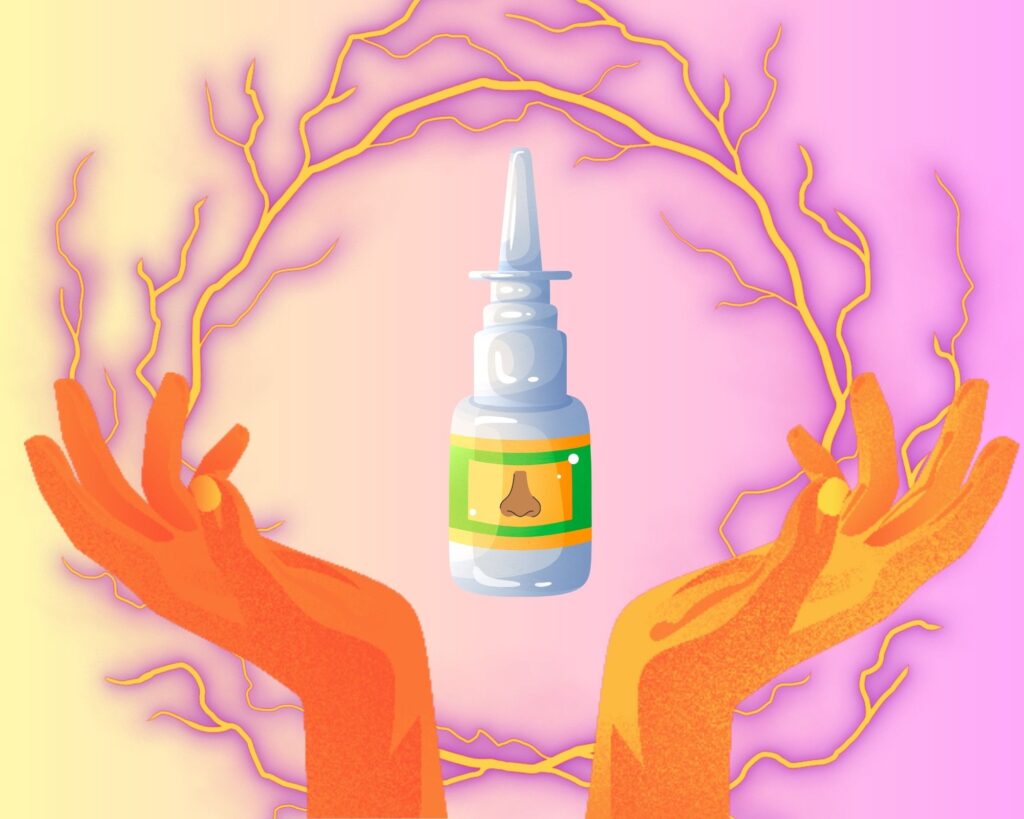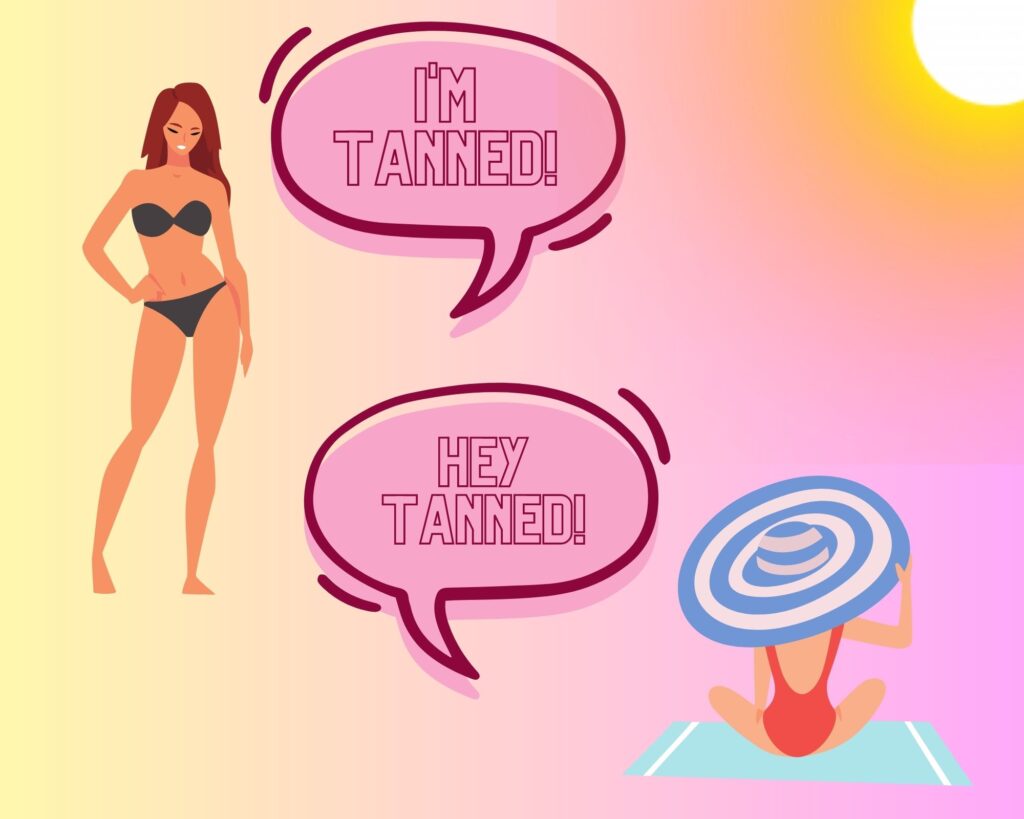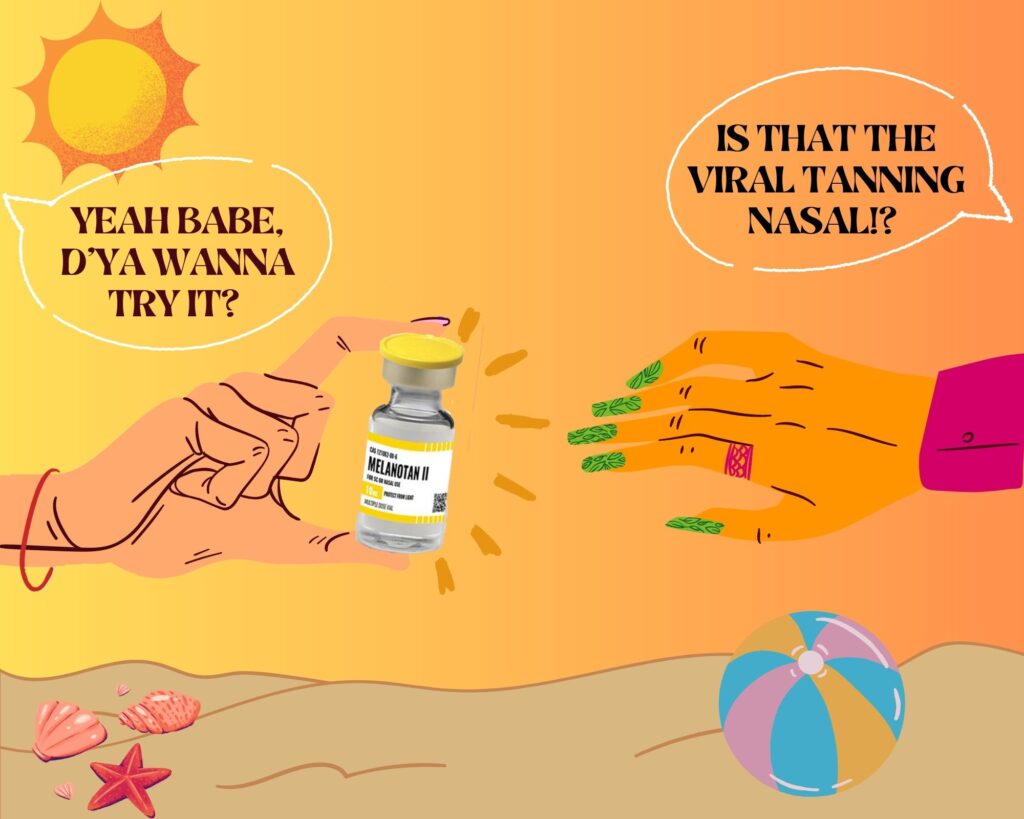A young, sun-deprived Megan Jones is stuck at home during June 2020 lockdown. She scrolls endlessly through TikTok with envy as she watches young girls flaunting their sun-kissed skin. With beaches off-limits and holidays cancelled, she yearns for that radiant glow that only her annual girls’ trip can provide. But then, she sees it right there on her screen, the solution to all her problems – tanning nasals.
Developed as a drug for erectile dysfunction, Melanotan II has been rebranded as a nasal tanning spray – the new craze for those who like to bask in the glow of unregulated, illegal products. The premise is quite simple: spray the product up your nose and within a few hours your skin should start to darken and exhibit gorgeous brown hues; at least in theory. An untested and unregulated theory.
“I just see myself as someone that is tanned. I identify as tanned. I always have to be tanned”
Delving into the influences that led her to the dark side of tanning, 21-year-old Megan says, “I was on TikTok a lot over that time when I started seeing them everywhere. I also knew a friend who took them and she always looked so brown.” Megan added that her love for “white outfits” and “low waisted trousers” means that she had no other choice but to use tanning nasals, and insists that these things have to be worn with a tan: “That whole Y2K trend is so in right now and it just requires a tan.”
Frankie Hepper, who is now 36-years-old, “was taking sunbeds before people realised they were bad for you”. She started using tanning nasals two years ago. She believes that a tanning addiction intersects with another TikTok fad encouraging people to bronze up: “I definitely see TikTok trends for minimal makeup; that ‘summer glow’ beachy look which is always more achievable with a tan.” Frankie traces her inspiration back to her ex-girlfriend’s Brazilian heritage, saying, “My ex-girlfriend was Brazilian, and she always had such a great tan, so I guess I just wanted one as well.”

On the surface it would seem their desire to emulate sun-kissed Brazilians or Y2K fashionistas fuelled their pursuit of bronzed perfection, but there is perhaps a more concerning side of their tanning habits. They both share a dislike of their own natural skin colour.
Frankie says, “I just see myself as someone that is tanned. I identify as tanned. I always have to be tanned.” Megan shares this need of being tan as an inherent characteristic, “I guess after years of using fake tan people just expected me to be tanned so I have to maintain it. I hate being pale.”
Jim McVeigh, professor of substance use and associated behaviours at Manchester Metropolitan University says, “There is an addictive quality to these products and the sensation of being tanned that is yet to be empirically proven. There is a grave concern that when people start taking these products, they will think safer alternatives like fake tan will never live up to their internal darkening effect.”
But how effective are these tanning nasals? Megan points to their mega power, “They are very good. Even if you don’t go in the sun, they darken your skin, so obviously if you go in the sun or sunbed, they work even better.” She added, “I have never got sunburned since I started taking them. Megan has always bought them on Depop, and the safety and legality this seems to have never crossed her mind, but claims she’s had “no side effects”.
Frankie also purchased her nasals online, usually on eBay. And despite saying that she has no side effects, she revealed that the blues of her eyes are “lightening” and the whites are “yellowing” in the years since she first inhaled them.

Torben Breindahl is a clinical biochemist who conducted a study in 2014 identifying and characterising Melanotan II tanning nasals sold illegally on the internet. He says, “the exact prevalence of using Melanotan II is unknown” and the side effects “are not registered in a systematic way so that researchers can have access to them. Without a centralised database for collecting and analysing adverse reactions, users are left in the dark, unable to make informed decisions.”
More concerning still is that they are constantly mislabelled. Torben says, “we have analysed the content of a nasal spray from the UK, and it did not even contain Melanotan II but the drug Bremelanotide,” which treats low sexual desire in women. The nasal spray was falsely labelled, this could pose a major risk as it is also an uncontrolled substance.
Jim added to this concern, saying “there is evidence the untested products may be linked to skin cancer. There have also been reports of people’s faces burning up and airways tightening, in the worst cases causing throat and sinus infections, lesions, fungal infections and abscesses.”
As we edge closer to summer and people are try to achieve their desired glow by any means necessary, we are here to remind you that not all that glitters is gold when it comes to tanning nasals. TikTok may tempt you and low-waisted trousers might be calling your name, but instead of giving in, perhaps we should all just embrace the skin we’re in instead.

